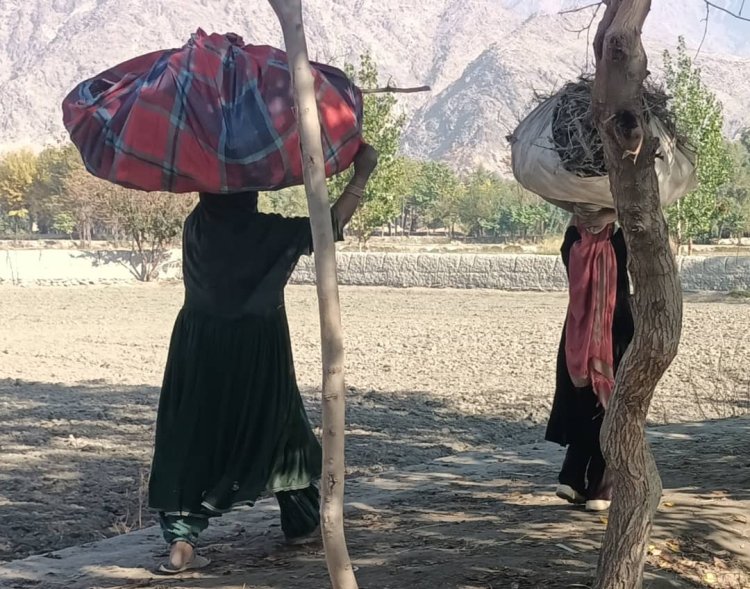From Clay to Bread: The Life Story of Rural Female Farmers

In several provinces of Afghanistan, the number of women engaged in agriculture and livestock farming has increased, and today, hundreds of women earn a livelihood for their families through this work.
Najiba, a 40-year-old woman from Nijrab district in Kapisa province, says she is the sole breadwinner for her six-member family, relying entirely on agriculture to meet their needs. As the head of the household, she cultivates four jeribs of land and sustains her family through farming.
Her husband, a former military officer during the republic era, was killed in a landmine explosion. Najiba herself was a schoolteacher, but she lost her job three years ago and has since been responsible for caring for her six children.
She explains that poverty and unemployment forced her into farming, a role traditionally held by men. Despite the challenges, she has taken on the burden of feeding her family through hard labor in the fields.
Najiba says: “I’ve been a widow for five years. Since my husband passed away, the responsibility of raising our six children has fallen on me. I used to have a job, and someone else would farm our land. But since I lost my job, I’ve had no choice but to do the farming myself. This year, I’ve planted wheat and fresh vegetables on four jeribs of land. There’s no other way—I must provide for us through this land.”
She notes that she works in the fields just like the men in her village, though she’s never received any formal training. Everything she knows, she learned from the elders in her family. Najiba says the major challenges she faces are lack of market access for her produce, absence of improved seeds, water shortages, and lack of support for farmers.
She laments that the Directorate of Agriculture and aid organizations have not provided her with any assistance—no improved seeds, fertilizers, or modern tools. Agriculture in her area is still entirely traditional, with no efforts toward modernization.
Najiba adds: “Often our crops are destroyed by pests, and fresh vegetables don’t sell well in the market. That’s why farming doesn’t bring me much profit, and I suffer financially.”
Zarmina, a woman from Alishing district in Laghman province, is also the sole provider for her ten-member family. She has planted a variety of vegetables on one and a half jeribs of land, and working in the fields is the only hope she has for feeding her family.
She says she’s been farming for nearly ten years, a skill she learned from her father. In her village, many women rely solely on agriculture to support their families.
Zarmina explains: “I’ve been farming for two years now—planting tomatoes, okra, leafy greens, and other vegetables. I sell about half and give the rest to neighbors to sell for me. That’s how I meet my children’s needs. I’ve never received any training. When I was a child, my father used to farm, and I would go with him. Now I know how to do it myself.”
She expresses deep concern about her difficult situation, saying she faces serious financial problems and sometimes has to sell aid she receives from others just to get by.
Zarmina continues: “Most of the time, the vegetables I grow don’t even cover the costs. Villagers sometimes help me, but there have been days when we’ve gone to bed hungry. I have no adult son—only daughters. My husband is elderly and paralyzed and cannot work. I have no choice but to farm.”
This comes as restrictions on women’s education and employment have intensified under Taliban rule. Many women are now trying to create small businesses or self-employment opportunities in order to survive.
In Afghanistan, due to the worsening economic situation, reduced international aid, and harsh restrictions on women, life has become even more difficult for those who bear the burden of supporting their families.
These women are calling on international organizations to provide job opportunities and designate specific spaces for women-led businesses in the country.
